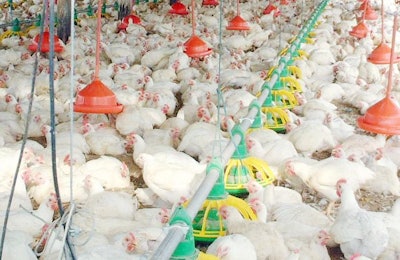
In its latest report, RCL Foods describes its financial results for the half-year as “resilient.”
For the six months to the end of December of 2022, group revenue was almost 18% higher year-on-year at 20.2 billion rand (ZAR; US$1.10 billion). Despite higher input costs, the company was able to raise its prices, and expand output by its poultry, sugar, and logistics businesses.
However, the group’s directors have resolved not to offer an interim dividend based on these results. Instead, cash will be preserved to help manage the contouring high costs, as well as to support business realignment. Separation of its poultry and logistics operations is still in progress.
Compared with the same period of 2021, RCL Foods’ profit is reported to be 8.9% lower. Earnings Before Interest, Taxes, Depreciation, and Amortization (EBITDA) for the six months just ended was ZAR1.178 billion. This was the result of “exceptionally difficult trading conditions,” the company said. It highlighted its high input costs, the rising cost of living for consumers, and ongoing power supply issues.
At almost ZAR1.125 billion, Underlying EBITDA was down 9.2%. At 62.2 ZAR-cents, Underlying Headline Earnings per share dropped by 21.6% compared with the figure of a year ago.
Over the six-month period, Group CEO Paul Cruickshank reported that RCL Foods had aimed to achieve a balance between competing economic factors.
“Focusing on the factors we can control in current conditions, we have sought to deliver a stable Rand profit and grow market share while supporting cash-strapped consumers as far as possible, both through value innovations and responsibly-managed price increases,” said Cruickshank. “In so doing, our concern has been to balance the need for margin protection with the pressure on consumers’ pockets.”
Poultry profitability slips into the red
For RCL Foods’ poultry business, Rainbow, increased sales volume and a shift in product mix helped to boost revenue by more than 19%. One of the group’s brands — Simply Chicken — reached its highest ever market share.
In contrast, Rainbow’s EBITDA for the six months to December of 2022 was a negative figure of ZAR6.1 million with a negative margin of 0.1%. Twelve months previously, EBITDA for this business was reported at ZAR58.3 million with a 1.1% margin.
This operation’s profitability was adversely impacted by high feed prices, poor agricultural performance, and frequent power outages, the company reports. Impacts of load shedding were felt on feed conversion efficiency, diesel costs, and overtime costs arising from the extra shifts necessary to process the birds. In spite of these factors, the group reports that service delivery was well managed during peak demand, resulting in a more profitable mix.
In a highly competitive market, the animal feed business lost market share. Furthermore, the group reports adverse impacts from the electricity supply issues as well as high costs of feed ingredients.
Comprising the Groceries, Baking and Sugar operations, RCL Foods’ Value-added business operation also increased market share in some sectors. Sales revenue was almost 17% higher than in the same period of 2021 at ZAR12.24 billion, but EBITDA was down 4.6% at ZAR978 million.
RCL Foods’ future perspectives
In its six-month report, the group forecasts consumer demand in South Africa to remain suppressed. However, it sees an important role in continuing to provide affordable food as part of its Value-Added growth strategy.
At Rainbow, the focus will continue to be on delivering a turnaround plan for the business as well as improving agricultural results. Key strategies are improving competitiveness and achieving growth.
Already, steps have been taken by the group to prepare Rainbow for its separation from its Value-Added Business. Full separation will be effected when the group considers it to be appropriate.
From the next financial year, Rainbow expects to see benefits from the introduction of a new breed. Around the same time, capacity will be increased at the firm’s processing facility in Hammarsdale in KwaZulu-Natal through the addition of a second shift.
More on RCL Foods’ Rainbow business
According to the group, Rainbow produces a wide range of chicken products under the brands Rainbow, Simply Chicken, and Farmer Brown.
It has 125 rearing, laying, and broiler farms, and hatcheries across South Africa, as well as 72 contract grower farms. It also has three slaughterhouse/primary processing plants, and two further processing facilities.
Rainbow’s feed business produces livestock and poultry diets under the brands Epol and Driehoek. In addition to 232 metric tons of pet food sold daily, RCL produces 913 million metric tons of animal feed annually.
With annual slaughtering of 197 million birds, RCL Foods/Rainbow is the second largest poultry company in Africa, according to the WATTPoultry.com’s Top Poultry Companies survey.
In September of last year, RCL Foods’ announced its plan to re-form Rainbow as a separate company for poultry and animal feed.
RCL Foods began to review its chicken/feed business at the end of 2020.















